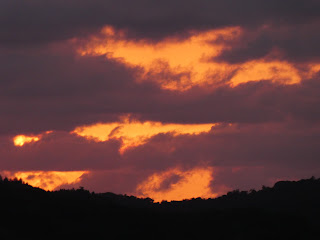Hong Kong's second biggest film festival is currently taking place!
The latest edition of the Hong Kong Asian Film Festival kicked off on Wednesday, the day that Hong Kong's now opposition-less Legislative Council passed amendments to the film censorship law to allow film censorship on the basis of national security considerations. As a Variety article points out: "The revision to the law is the latest operation to tighten the
government grip on civil society, artistic and speech freedoms in the
country"; and "[u]nder the film censorship amendment, violators screening unauthorized
films may face punishments including fines up to $129,000 (HK$1 million)
and three years in prison."
As was pointed out in the same piece: "Significantly, the amended law gives authorities retrospective powers.
Films that have previously received release approval can now be blocked
if they are considered to be glorifying or supporting acts that could
endanger national security." And I wouldn't be all that surprised if a film (or more) will end up getting pulled from the ongoing Hong Kong Asian Film Festival; this not least because one of the Hong Kong International Film Festival's scheduled opening films ending up being pulled from the program this year.
As it so happens though, both of the Hong Kong Asian Film Festival's opening films were allowed to be screened as planned. Something else worth noting is that, for now, the amended film censorship law does not cover the online screening of movies. And neither does it cover music videos. Thus it is that while Malaysian bad boy rapper Namewee's Fragile music video (featuring Australian singer-actress-model Kimberley Chen) has been banned in Mainland China, this Mandopop song which makes fun of jingoistic Mainland Chinese nationalists known as "little pinks" has not been banned in Hong Kong -- and, in fact, has gone to the No. 1 spot on Youtube in Hong Kong as well as Taiwan!
Actually, Namewee and Kimberley Chen -- not just their particular collaboration -- have now been blocked from Weibo in the wake of the release of Fragile! But neither entertainer seem particularly upset or regretful about this. After all, their music video now has more than 20 million views and been a big hit in Namewee's native Malaysia and neighboring Singapore as well as Hong Kong and Taiwan!
Amidst all the furor, NBC News reported that Namewee had said some interesting things which I reckon deserve amplifying. Firstly, in response to accusations that he, whose real name is Wee Meng Chee, is insulting Chinese people: “I am [ethnically] Chinese. Am I insulting myself?” And in response to accusations that he has been promoting Hong Kong and Taiwan independence: "I have never said anything [about Hong Kong and Taiwan independence].
If you don’t believe me, you can do a search... “Regarding
this question, you should ask the people of Hong Kong and Taiwan what
they think. My nationality is Malaysian. I cannot speak on their
behalf."
At the same time though, Namewee made the following clear: "I will definitely stand with freedom and democracy. The human rights
that we were born with are universal values, and that is what [I am]
after as a Malaysian. This is why people take to the street to protest
over and over again."
After seeing the likes of his compatriot, Nigel Ng (AKA Uncle Roger), kowtow to China (or, at least, Chinese money), this is a refreshing take to see and hear. Also refreshing and heartening to see and hear has been NBA player Enes Kantner standing up for Tibetans, Uyghurs, Hong Kong and Taiwan. At a time when many people living in China don't feel able to speak up (for themselves, never mind others), it is a good thing that there exist people ouside of it who are caring and willing to do so.






















